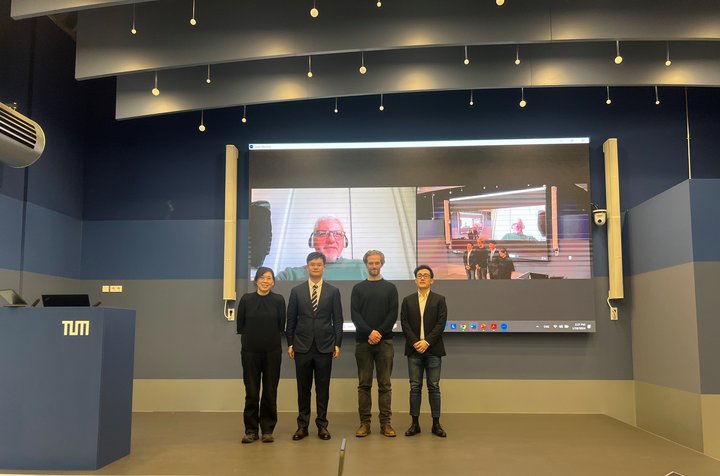On January 18, 2024, Kun Qian defended his thesis entitled Deep Learning in Synthetic Aperture Radar Tomographic Inversion, supervised by Prof. Dr. Xiaoxiang Zhu and Guest Prof. Dr. Yuanyuan Wang. The defense committee was chaired by Prof. Dr. Niklas Boers. We particularly appreciate the engagement of the external examiner Dr. Gianfranco Fornaro from CNR-IREA, Italy!
Congratulations, Dr. Qian!
Along with the advancements in sensor technology, e.g. higher resolution up to sub-meter of modern synthetic aperture radar (SAR) satellites, and in signal processing methods, e.g. compressive sensing and sparse reconstruction, it is nowadays possible to reconstruct an entire city in 3D with a point density on the order of one million points per square kilometers from space using tomographic SAR (TomoSAR). Yet scaling up to 3D/4D reconstruction of individual cities by means of sparse recovery-based TomoSAR algorithms is limited by their scalability and computational costs.
In recent years, there has been significant progress in deep learning, with extensive applications found across various remote sensing fields due to its powerful learning capabilities. A proficiently trained deep neural network can effectively function as a nonlinear entity, adept at representing intricate mathematical models, including challenges such as the compressive sensing problem. Inspired by this observation, the objective of this thesis is to investigate the potential of employing deep learning for efficient and accurate super-resolving TomoSAR inversion.
